WE look at twelve Irish people who got their first leg-up on the slippery slope to success and celebrity by moving to Britain.
1. Annie Mac
Annie MacManus, or Annie Mac her nom de wireless, is a BBC Radio 1 DJ and presenter.
She was born in Dublin, and studied English Literature at Queens University in Belfast.
After college Annie left for London where she became a Radio 1 producer and before long was on the airwaves herself.
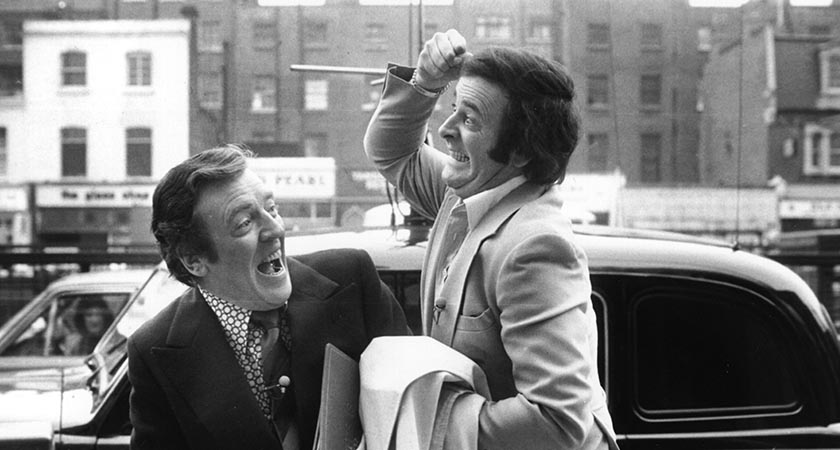 Two titans of the entertainment world: Eamonn Andrews and Terry Wogan. Picture: Evening Standard/Getty Images
Two titans of the entertainment world: Eamonn Andrews and Terry Wogan. Picture: Evening Standard/Getty Images2. Eamonn Andrews
Eamonn Andrews, Ireland’s first media superstar, was the pioneer of a seemingly endless conveyor belt of Irish broadcasters, journalists, DJs and comedians who came to dominate the British airwaves.
Even more impressively, Andrews did it a time when being Irish in Britain was not terribly popular.
Mid 20th century English people, if they thought about Ireland at all (and most of them didn’t), would have had a far more negative view of the Irish than they do now.
Ireland had just become a Republic, and in the 1950s there was still bitterness over Ireland’s neutrality during World War II, despite the fact that thousands of Irishmen served with the Allies.
Yet Andrews rose above this. He began as a boxing commentator - a very good one - and by the mid 1950s had moved into the mainstream to become one of the most popular broadcasters on the BBC.
But he still had to watch his step.
When a newspaper phoned his office to find out if there were any anecdotes they could include for Christmas, Eamonn’s secretary said, “Oh, I doubt very much if Mr Andrews would want to be involved in anything as risqué as an anecdote.”
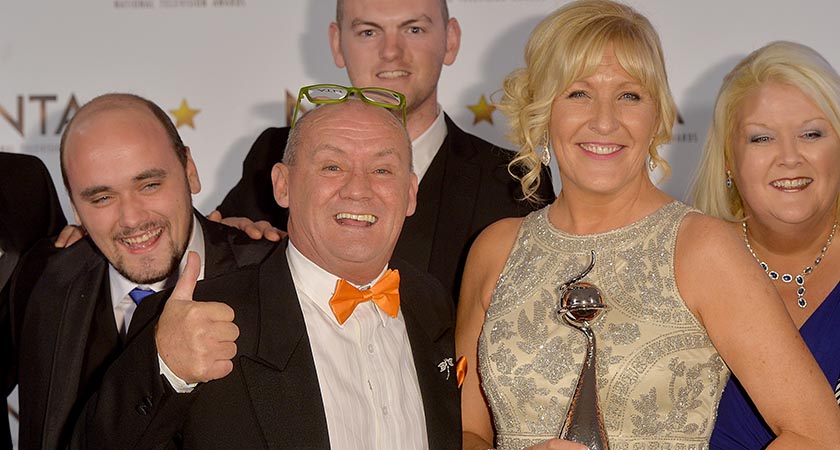 The cast of Mrs Brown's Boys. Picture: Anthony Harvey/Getty Images
The cast of Mrs Brown's Boys. Picture: Anthony Harvey/Getty Images3. Brendan O'Carroll
Brendan O’Carroll was chugging along nicely with a very successful career as a comedian in Ireland, doing the clubs and having the odd spot on telly.
But in an inspired move he started to take parts of his stand-up show and craft them into plays, then record them.
The DVDs did well, if only on a local scale. But they came to the attention of American company October Films who, somehow spotting the potential, made the movie Agnes Browne starring Angelica Huston and Ray Winstone.
Suddenly Brendan O’Carroll had traction, as we movie buffs like to say.
In early 2009, O'Carroll was approached by BBC Scotland to create a television series based on the stage show.
Mrs Brown's Boys became one of the most astonishing successes in sitcom history. But although the show has high viewership, it has been critically disparaged, even being dubbed the "worst comedy ever made".
4. Terry Wogan
Terry Wogan utterly dominated the British airwaves for decades; at one time he was probably one the best known faces in Britain.
That Wogan achieved this at a time when an IRA campaign was in full flow in Britain, causing most Irish people to keep a low profile, is little short of extraordinary.
Somewhat ironically for a man from Limerick, he is credited with allowing Britons to feel good about themselves.
They identified with his humour, despite it being culled from the likes of James Joyce and Flann O’Brien.
Terry Wogan acted as an unofficial ambassador for the Irish in Britain.
Unlike some of his peers on Radio 2, he was erudite and extremely well-educated.
The idea of the “thick Paddy”, propagated in British culture during the first half of the 20th century was banished by the end of the century; Terry Wogan played a part in that sea change.
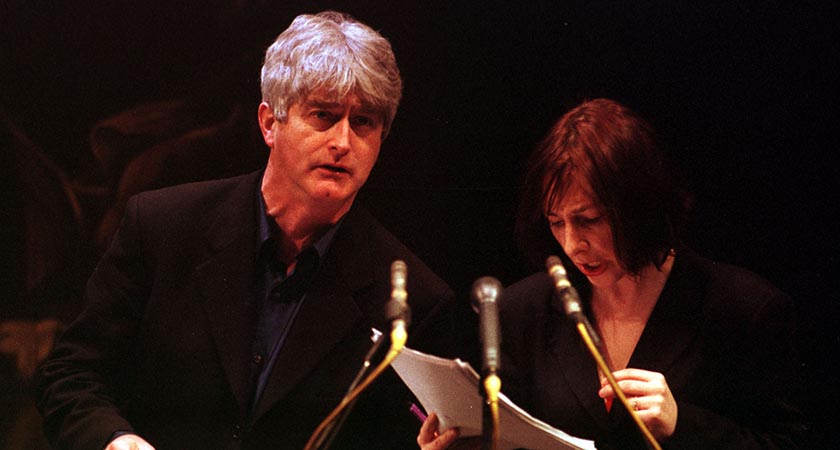 Dermot Morgan and Pauline McLynn of Father Ted fame, Picture: RollingNews.ie (Photocall Irleand)
Dermot Morgan and Pauline McLynn of Father Ted fame, Picture: RollingNews.ie (Photocall Irleand)5. Graham Linehan
Father Ted got its first break in Britain. Written by Arthur Mathews and Graham Linehan, the show was produced by British independent production company Hat Trick for Channel 4.
The story of three priests who can’t quite get the hang of sobriety, chastity or honesty became phenomenally successful.
Back in the 1980s a comedy about priests seemed quite a cuddly idea — it’s doubtful if the format would even get off the ground today.
Nonetheless Father Ted has proved to be as durable as it is funny, and somewhere in the world right now an episode depicting the priests of Craggy Island is playing.
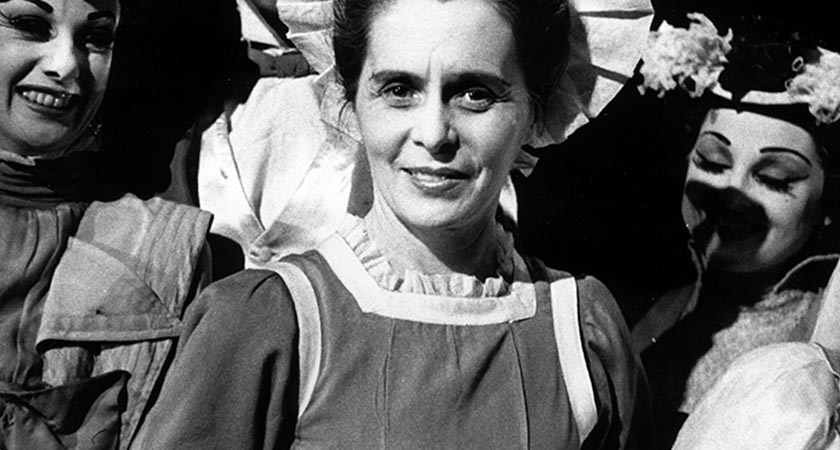 Wicklow woman Ninette de Valois. Picture: Baron/Getty Images
Wicklow woman Ninette de Valois. Picture: Baron/Getty Images6. Ninette de Valois
The Irish "Mother of English ballet" was born Edris Stannus in Wicklow.
After moving to England she became the principal driving force in British ballet for more than 70 years, and was the founder of the company that became the Royal Ballet.
Edris’s empathy with dance emerged early. Having watched another girl dancing at a children's party in England, she demanded that she should be allowed to do an Irish jig — and did so confidently and proudly.
In 1919 she danced in operas at Covent Garden, after which she joined the Russian ballet in London. She then became Ninette de Valois to satisfy public expectation of the kind of name a dancer should have.
She died in 2001 aged 102.
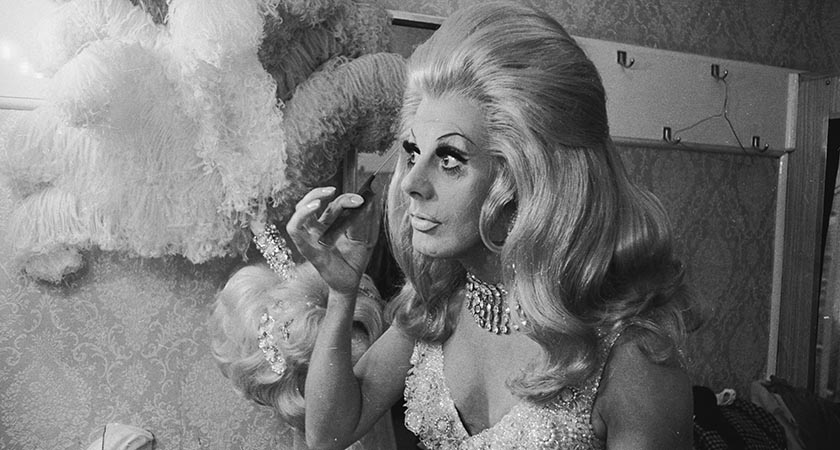 Daniel Patrick Carroll, better known as Danny La Rue. Picture: James Jackson/Evening Standard/Getty Images
Daniel Patrick Carroll, better known as Danny La Rue. Picture: James Jackson/Evening Standard/Getty Images7. Danny La Rue
Danny La Rue was born Daniel Patrick Carroll in Cork in 1927.
His family moved to England when he was six, and Danny was brought up in Soho.
He became known for his skill as a female impersonator, or "comic in a frock" as he preferred to be called.
It was said that if you wanted a double entendre, Danny would always give you one.
8. Bill Naughton
Playwright, novelist and screenplay writer Bill Naughton was from Ballyhaunis, Co. Mayo.
Naughton was educated by Irish nuns in Bolton, and subsequently worked as a weaver, coal-bagger and lorry-driver before starting to write.
Although his style is somewhat out of fashion now, he nonetheless remains a key figure in post World War II English literary life.
Naughton's best known work is Alfie — he wrote the play and book, and subsequently the screenplay for the film which starred Michael Caine.
His work documents with great insight, humour and understanding, Lancashire working class life in the period between the wars.
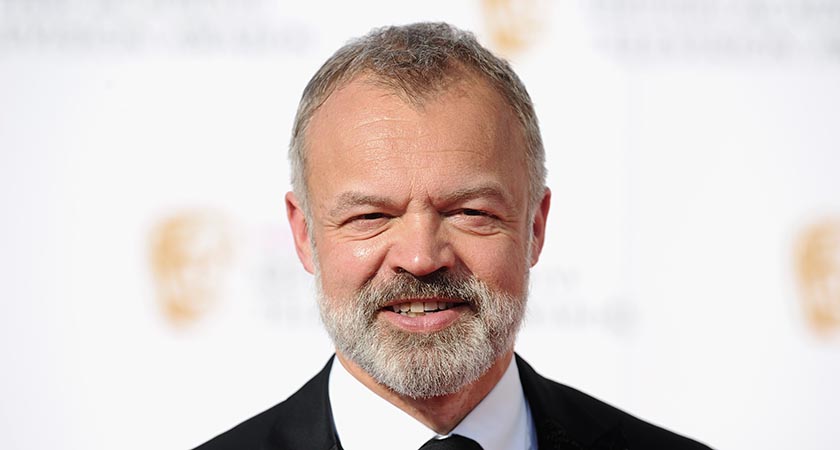 Graham Norton. Picture: Stuart C. Wilson/Getty Images
Graham Norton. Picture: Stuart C. Wilson/Getty Images10. Graham Norton
Graham Norton was born in Dublin, but grew up in Bandon in Cork.
It’s not difficult to work out why he found himself on the boat to England very sharpish — in the 1980s rural Cork was probably not the ideal place for a gay Protestant who had notions of show business.
In 1992, his stand-up comedy drag act as a tea-towel clad Mother Teresa of Calcutta in the Edinburgh Festival Fringe made a media splash when Scottish Television's religious affairs department mistakenly thought he represented the real Mother Teresa.
Now a 'national treasure' in England, he has since remained clear of politics in general.
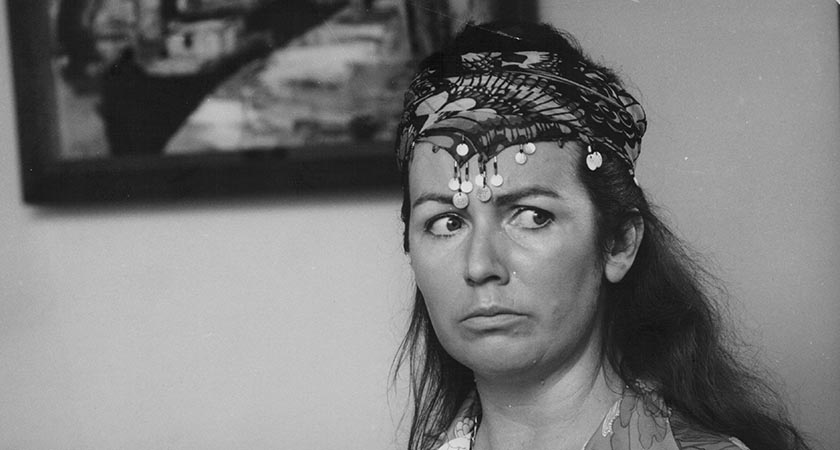 Edna O'Brien. Keystone/Hulton Archive/Getty Images
Edna O'Brien. Keystone/Hulton Archive/Getty Images11. Edna O’Brien
Irish novelist Edna O'Brien was born in 1930 in Tuamgraney, Co. Clare. She was educated at the Convent of Mercy in Loughrea and at the Pharmaceutical College of Ireland.
After marrying the writer Ernest Gébler (later separated) she moved to London in 1959.
A spell reading manuscripts for the publishers Hutchinson in London brught her to the attention of editors and she was commissioned to write her first novel The Country Girls (1960).
This was the first book in a trilogy of novels about two young convent-educated girls who run away to Dublin and London.
Her frank treatment of sexuality brought her into conflict with the Catholic Church and the Irish authorities. Several of her books were, predictably, banned by the Irish Censorship Board.
Without coming to England she may well have spent her life as a pharmacist in the west of Ireland, “O’Brien’s Dispensers of Tuamgraney” perhaps.
But instead her genius shone through, flowered and she became “the most gifted woman now writing in English", according to Philip Roth.
12. Wilfrid Brambell
Wilfrid Brambell was born in Dublin where his father worked at Guinness's Brewery. On leaving school the young Wilfrid worked part-time as a reporter for The Irish Times and also as an actor at the Abbey Theatre before becoming a professional actor for the Gate Theatre.
He also did repertory at Swansea, Bristol and Chesterfield.
For such a young actor he had a pronounced ability to play old men that led to his most famous role, Albert Steptoe, the irascible father in Steptoe and Son.
The series was one of the first British sitcoms to employ actors rather than comedians in the principal roles.
In retrospect this was a masterly stroke, because although exquisitely funny in places, the stories are almost Beckettesque in their bleakness.
The father and son were trapped by their own character flaws, of which there were many. Their anti-chemistry, their antagonism, was as poignant as it was believable.
Aside from Steptoe, Brambell was a fine stage actor, and garnered a clutch of film roles including the grandfather in The Beatles’ A Hard Day’s Night.
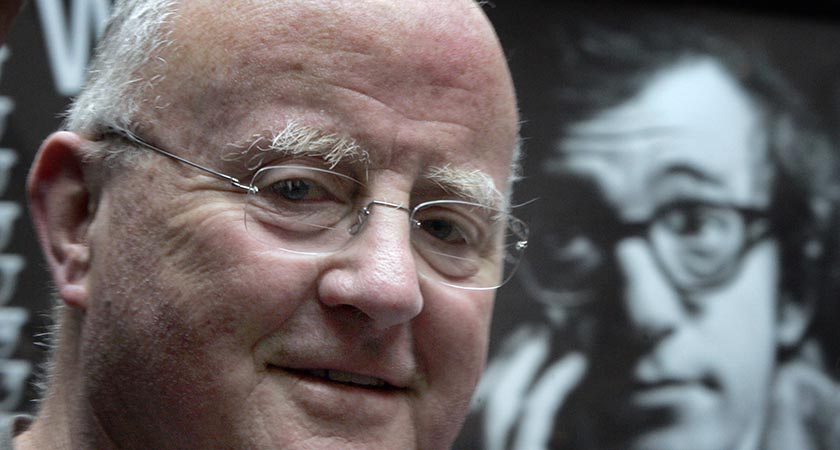 Christy Moore Picture: Mark Stedman/RollingNews.ie (Photocall Ireland)
Christy Moore Picture: Mark Stedman/RollingNews.ie (Photocall Ireland)13. Christy Moore
Christy Moore started his adult life as a bank employee. During a 12-week bank strike in Ireland in 1966, he went to England.
When the strike was over, Christy said farewell to the bank and stayed put.
He became a labourer in England, at night frequenting folk clubs and traditional Irish seisúns. It was here that the seeds of his subsequent career were sown.
Moore has cast his mastery over Irish music ever since.

